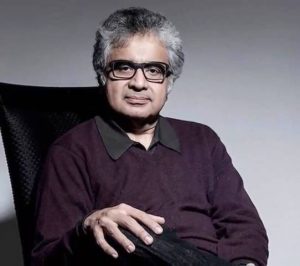Above: Workers carry a poster advertising upcoming Bollywood film Padmavati. Photo: UNI
Top court refuses to stay release of film
The Supreme Court bench of Chief Justice Dipak Misra and Justices A M Khanwilkar and D Y Chandrachud on Tuesday (November 28) not only refused to stay the release of the period film Padmavati, but also came down heavily on ministers, saying how have people in “responsible positions holding public offices…” made “statements on a film that has yet to be cleared by the CBFC (Central Board of Film Certification).”

The court was referring to several chief ministers of different states who have made statements of whether the movie will be allowed to be shown in that state or not.
However, an interesting development happened at court on Tuesday. Harish Salve, representing the film’s director Sanjay Leela Bhansali, was asked by the CJI is the film would be released abroad without certifications.
While Salve said, “These petitions are based on gossips (about historical facts),” he also said in open court that this film will only be released abroad if it gets a certification in India. The court has accepted this statement by the counsel. It may be recalled that the film got a 12A certification in the UK on November 23 and technically it could have been released in that country. However, with this statement, and with the Supreme Court accepting and recording this statement, it would not be possible for the film to be released in the UK before it gets a certification from India’s CBFC.
However, the Indian certification rating will not apply to the UK certification rating.
In court the CJI asked Additional Solicitor general Maninder Singh: “Why should person responsible for the certification board comment on that? Don’t create any type of gossip. The issue is very vital. If the movie was presented before the CBFC and they had rejected it, then no question would have arisen. If they are not taking any responsibility then they have to take a step in giving a certificate to this movie. It is not a thing which citizens discuss.”
With this the court dismissed the PIL for a stay on the film.
—India Legal Bureau


